第12章
When the Corinthian preparations were completed, they took three days' provisions and put out from Chimerium by night, ready for action. Sailing with the dawn, they sighted the Corcyraean fleet out at sea and coming towards them. When they perceived each other, both sides formed in order of battle. On the Corcyraean right wing lay the Athenian ships, the rest of the line being occupied by their own vessels formed in three squadrons, each of which was commanded by one of the three admirals. Such was the Corcyraean formation. The Corinthian was as follows: on the right wing lay the Megarian and Ambraciot ships, in the centre the rest of the allies in order. But the left was composed of the best sailers in the Corinthian navy, to encounter the Athenians and the right wing of the Corcyraeans. As soon as the signals were raised on either side, they joined battle. Both sides had a large number of heavy infantry on their decks, and a large number of archers and darters, the old imperfect armament still prevailing. The sea-fight was an obstinate one, though not remarkable for its science; indeed it was more like a battle by land. Whenever they charged each other, the multitude and crush of the vessels made it by no means easy to get loose; besides, their hopes of victory lay principally in the heavy infantry on the decks, who stood and fought in order, the ships remaining stationary. The manoeuvre of breaking the line was not tried; in short, strength and pluck had more share in the fight than science. Everywhere tumult reigned, the battle being one scene of confusion; meanwhile the Athenian ships, by coming up to the Corcyraeans whenever they were pressed, served to alarm the enemy, though their commanders could not join in the battle from fear of their instructions. The right wing of the Corinthians suffered most. The Corcyraeans routed it, and chased them in disorder to the continent with twenty ships, sailed up to their camp, and burnt the tents which they found empty, and plundered the stuff. So in this quarter the Corinthians and their allies were defeated, and the Corcyraeans were victorious. But where the Corinthians themselves were, on the left, they gained a decided success; the scanty forces of the Corcyraeans being further weakened by the want of the twenty ships absent on the pursuit. Seeing the Corcyraeans hard pressed, the Athenians began at length to assist them more unequivocally. At first, it is true, they refrained from charging any ships; but when the rout was becoming patent, and the Corinthians were pressing on, the time at last came when every one set to, and all distinction was laid aside, and it came to this point, that the Corinthians and Athenians raised their hands against each other.
After the rout, the Corinthians, instead of employing themselves in lashing fast and hauling after them the hulls of the vessels which they had disabled, turned their attention to the men, whom they butchered as they sailed through, not caring so much to make prisoners. Some even of their own friends were slain by them, by mistake, in their ignorance of the defeat of the right wing For the number of the ships on both sides, and the distance to which they covered the sea, made it difficult, after they had once joined, to distinguish between the conquering and the conquered; this battle proving far greater than any before it, any at least between Hellenes, for the number of vessels engaged. After the Corinthians had chased the Corcyraeans to the land, they turned to the wrecks and their dead, most of whom they succeeded in getting hold of and conveying to Sybota, the rendezvous of the land forces furnished by their barbarian allies. Sybota, it must be known, is a desert harbour of Thesprotis.
This task over, they mustered anew, and sailed against the Corcyraeans, who on their part advanced to meet them with all their ships that were fit for service and remaining to them, accompanied by the Athenian vessels, fearing that they might attempt a landing in their territory. It was by this time getting late, and the paean had been sung for the attack, when the Corinthians suddenly began to back water. They had observed twenty Athenian ships sailing up, which had been sent out afterwards to reinforce the ten vessels by the Athenians, who feared, as it turned out justly, the defeat of the Corcyraeans and the inability of their handful of ships to protect them. These ships were thus seen by the Corinthians first. They suspected that they were from Athens, and that those which they saw were not all, but that there were more behind; they accordingly began to retire. The Corcyraeans meanwhile had not sighted them, as they were advancing from a point which they could not so well see, and were wondering why the Corinthians were backing water, when some caught sight of them, and cried out that there were ships in sight ahead. Upon this they also retired; for it was now getting dark, and the retreat of the Corinthians had suspended hostilities. Thus they parted from each other, and the battle ceased with night. The Corcyraeans were in their camp at Leukimme, when these twenty ships from Athens, under the command of Glaucon, the son of Leagrus, and Andocides, son of Leogoras, bore on through the corpses and the wrecks, and sailed up to the camp, not long after they were sighted.
It was now night, and the Corcyraeans feared that they might be hostile vessels; but they soon knew them, and the ships came to anchor.